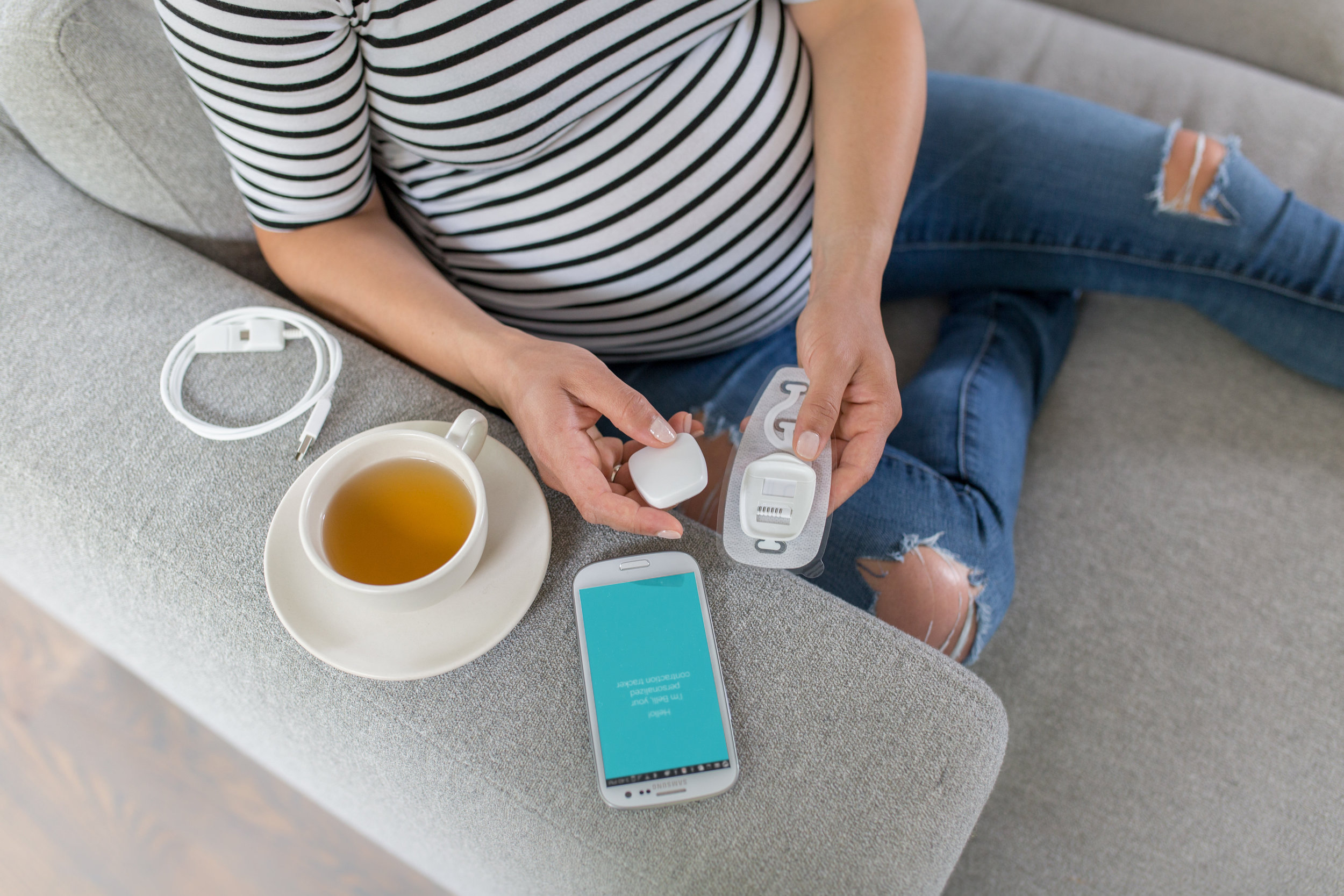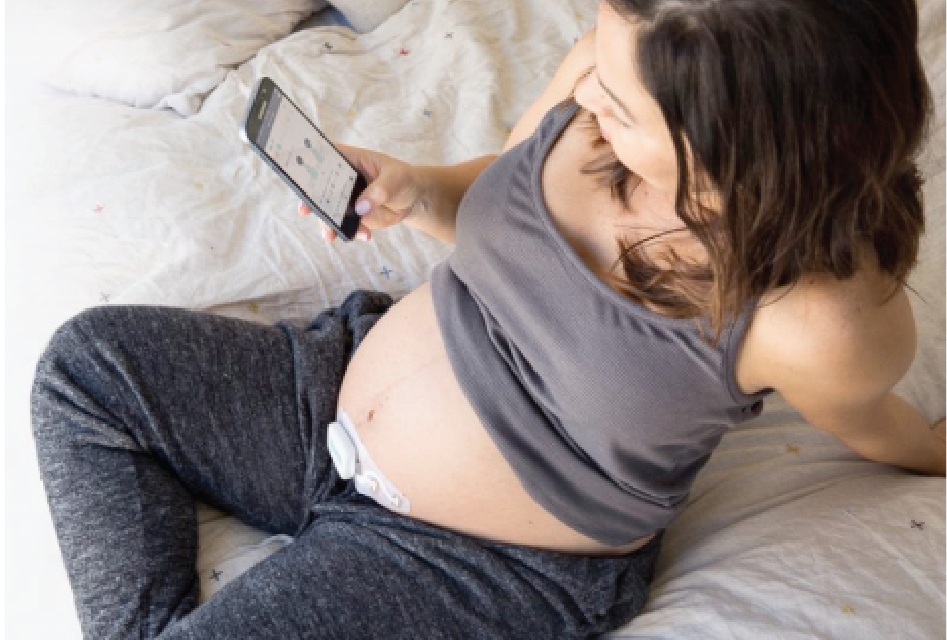WoW Woman in WearableTech and FemTech | Molly Dickens, Head of Content and Community at Bloomlife
Interview by Marija Butkovic (@MarijaButkovic)
Dr. Molly Dickens is a recovering academic turned Head of Content and Community for Bloomlife, a women's health company with the first wearable for pregnancy. A research physiologist by training, she was finishing up an NIH funded postdoctoral fellowship studying stress and fertility at UC Berkeley when she joined the Bloomlife team a few years back. She completed her PhD at Tufts University and did postdoctoral research in Belgium prior to her return to the Bay Area. She lives in Oakland with her husband, two daughters (1 & 3) and their enormous cat, Toby.
What is the idea behind Bloomlife and how did you come up with it?
The founders had been working in the world of medical grade wearables for over a decade and wanted to apply their expertise to a new area. At the time, Julien's wife was pregnant and they realized that not only were there a lot of questions about pregnancy that parents had and couldn't answer, but there were questions that researchers and doctors had a difficult time answering given limited access to physiological data during pregnancy. Bloomlife was born out of the need to provide parents better information while sourcing the largest data set on maternal and fetal health ever collected to provide to our academic research partners.
When did all start and who are other members in your team?
Bloomlife officially started over 3 years ago. I joined the team 2 1/2 years ago. We're a diverse team of engineers, product developers, data scientists, parents, non-parents, men and women. We're all researchers at heart (all of us have advanced degrees and nearly half of us have PhD's) so the bigger mission really speaks to all of us.
How long did it take you to be where you are now?
There was a lot of discovery in the early days. The founders wanted to make sure they fully assessed the need and the direction before plotting a course. They interviewed hundreds of women, including me when I was pregnant with my first daughter. Eric, one of co-founders, even followed me around for the day to see what life as a 35 week pregnant woman was like (a lot of belly scratching.)
Our hardware is able to capture a range of parameters for mom and baby across pregnancy. A little over a year ago, we realized that we needed to focus on one feature and put all of our weight behind it to really nail that it down. We settled on contractions for a couple of reasons. One, we were in a unique position, with our tech and team, to be one of the first consumer products to offer at-home contraction detection and tracking using electrophysiology. Two, talking to women, this was the one feature that rose to the surface of needs - of all the solutions we were poised to offer, an overwhelming majority of women reported needing a better way to understand, track and count contractions.
What was the biggest obstacle?
From my end - education. We have a new product in a new category - a glimpse into a physiological world, no woman has had access to before. Our wearable doesn't work the same way as the antiquated tech in the hospital (this is a GOOD thing) so we have had to spend quite a bit of time crafting the story to explain what we measure and how we measure it. We all-too-often hear the argument that "seeing this information will send women to the hospital unnecessarily." This is particularly frustrating for me because we actually see the opposite in women who have had the Bloomlife tracker. Turns out, women can be trusted with having more information about their bodies. Shocker. With that said, contractions are a tricky thing to provide information about. We measure all uterine activity, even contractions she might not feel. We have to be able to communicate and educate all along the way of the customer journey.
What are the challenges of being an entrepreneur in the niche you are in? How about being a female entrepreneur?
The "niche"-ness that is women's health (ha!). Its absurd that this area was ever considered niche. We are 51% of the population, we shouldn't have to justify the need. We've had to change our story around from the early days. At the beginning, when we discussed our goal of addressing women's needs in pregnancy we were pigeon-holed as a very niche product. I used to join for pitches, as a pregnant woman, speaking to the pregnancy experience, and that might have only made things worse. Once we switched the order of things, left the pregnant chick at home (me), and talked about the big picture and how our wearable could revolutionize prenatal care, people (men and women) finally opened their mind and realized that we were not too niche.
What are your biggest achievements to date?
Every positive experience we hear from women who use Bloomlife during their pregnancy. Its a reminder of why we are here doing what we are doing.
What are your projects you are currently working on within your company?
We are already planning out the next feature to release which is pretty exciting. On my end, I'm starting to build out the content side of things. We want to make sure any content we produce runs in parallel with our product in that we provide better, more comprehensive information for women to make more confident personal decisions in their pregnancy. Allow women to have a little bit of the power back in their hands when it comes to their own prenatal care.
What will be the key trends in the wearable tech and digital health industry in the next 5 years and where do you see it heading?
I love the direction that things are going in terms of the "empowered patient". I would like to see that continue and be more embraced by the medical establishment.
Why is #WomenInTech movement important to you?
A diverse set of voices highlights and champions a diverse set of needs. The world of women's health has been left behind in our world of innovation, especially when it comes to pregnancy and birth. There is this misconception that just because we have been doing this since humans started walking the earth, we don't need technology to assist us or that the technology, developed decades ago that "works just fine" but is locked in the hospital is good enough. This is bullshit. We've all embraced the smart thermostat and would never suggest going back to the days of throwing some more wood on the fire. We need to seriously question when people say "it was good enough for me" and think of better solutions where good enough is not good enough for everyone. I'm not saying that men can't champion these issues (clearly they can given that we have two male founders) but having more female voices helps to push these issues forward.
Who are your 3 inspirational women in wearable tech?
Honestly, every woman in tech who has a family and fights for some semblance of work/life balance is an inspiration in my eyes. I wish we truly lived in a world where work/life balance was a thing but, let's be honest, it's not. You are always going to sacrifice something. We need more female voices in the world of wearables and tech, in general, but moms make up an even smaller minority. Without the voice from women, who also happen to have children, we end up with products that are made for us without truly understanding what we need. Or worse, you end up simply overlooked as a market in need of innovation (see above comments about pregnancy and women's health.)
Twitter: @bloom_life
LinkedIn: Molly Dickens
Instagram: @bloom.life
This interview was conducted by Marija Butkovic, Digital Marketing and PR strategist, co-founder of Women of Wearables and Kisha Smart Umbrella. She regularly writes and speaks on topics of wearable tech, fashion tech, IoT, entrepreneurship and diversity. Visit marijabutkovic.co.uk or follow Marija on Twitter @MarijaButkovic @Women_Wearables @GetKisha.



